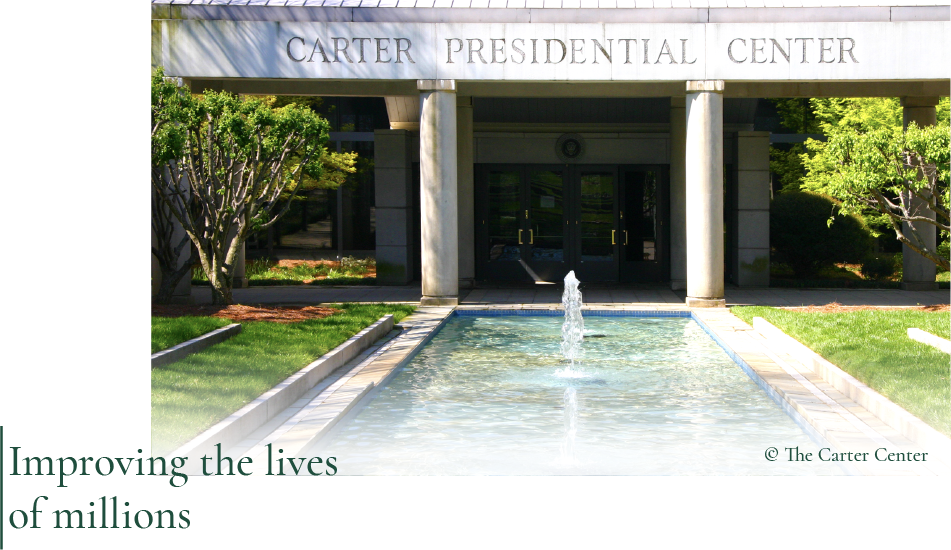81 percent of the population do not have access to a functional healthcare centre within two hours of their home
Years of armed conflict, climate shocks and outbreaks of disease have made Sudan one of the most challenging places in the world for healthcare professionals.
According to the United Nations Office for the Coordination of Humanitarian Affairs, 81 percent of the population do not have access to a functional healthcare centre within two hours of their home.
Infant mortality rates at 41 deaths per 1,000 live births are still way over the global average of 28.2 while the average life expectancy is 65.1, putting it in 143rd place out of 195 countries globally. The country has an acute shortage of healthcare workers, with many having fled poverty and war to seek work in other nations at a time when Covid is putting meagre facilities under intense stress.
It’s a bleak scenario into which former U.S. President Jimmy Carter is bringing to bear his positive energy and determination to improve the health outcomes of the world’s poorest countries.
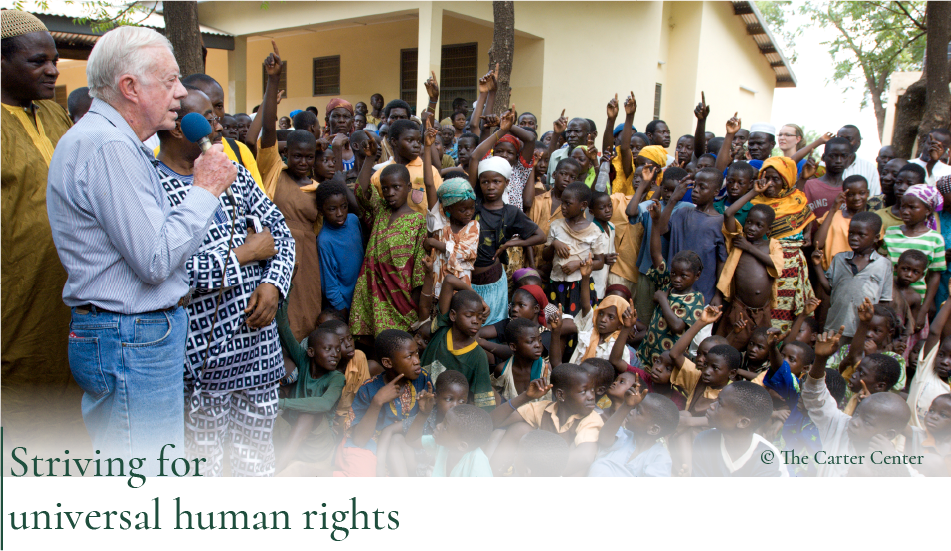
The Carter Center
Jimmy Carter was the inaugural Lui Che Woo Prize Laureate for Positive Energy in 2016. He established The Carter Center with his wife Rosalynn in 1982, hoping to promote human rights in the broadest possible sense, from providing a safe home, education, access to fresh water and freedom from disease and conflict across over 80 countries. The Center used part of the Prize money to strive to tackle the problems in Sudan head on. With its determination and belief in the possibility of a better future, the organisation set up the Sudan Public Health Training Initiative (SPHTI).The objective was to improve training across the healthcare spectrum in the country, including developing the skills of teachers themselves to pass on their knowledge to students.
The establishment of the SPHTI followed the success of a similar initiative in Ethiopia, which prompted the Sudanese government to seek the help of The Carter Center to replicate the programme.
3,370 Academy of Health students and more than 25,000 Professional Development Centre students and trainees
Based on a philosophy of helping others to help themselves, over the past five years the programme has improved skill and competency levels, boosted the capacity for in-service training and improved instructors’ abilities to facilitate interactive learning.
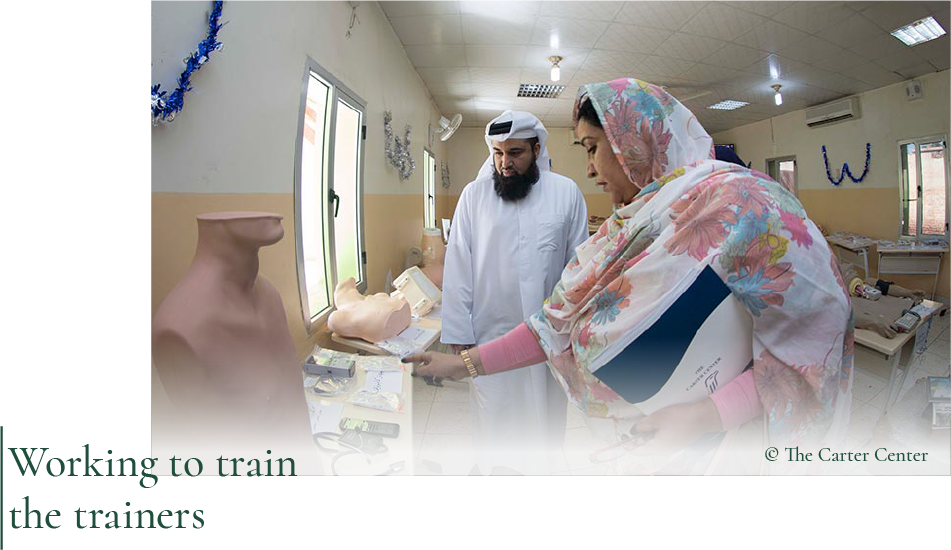
The Carter Center has implemented SPHTI activities with more than 3,370 Academy of Health students and more than 25,000 Professional Development Centre students and trainees. The initiative is now moving to its next phase, which involves handing over the project to local administrators. The Center is seeking further support from the Lui Prize in this essential next step in ensuring that Sudan is able to continue the initiative under its own steam.
The Center expects the handover phase to last for about six-to-twelve months. However, that won’t mean the end of its activities in the country. For decades, its teams have focused their energies on seeking to eradicate one of the scourges of Africa – river blindness.
“We deal with neglected tropical diseases, these are the diseases that affect the poorest and isolated and most suffering people on earth, primarily in Africa,” the president has said explaining his focus.
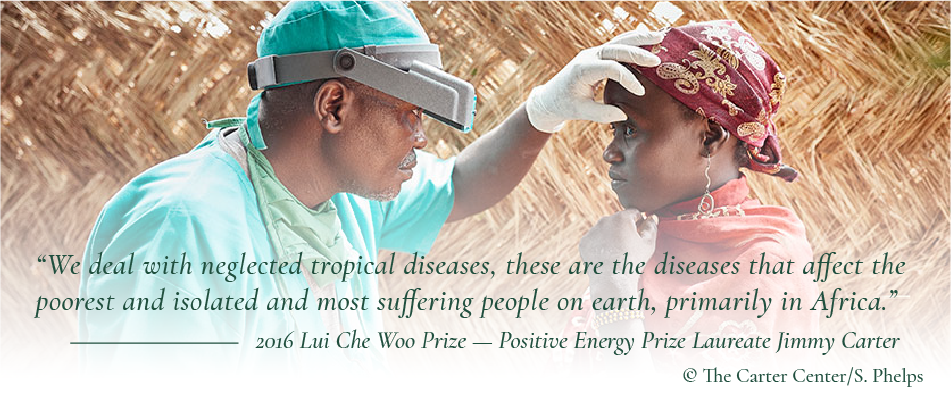
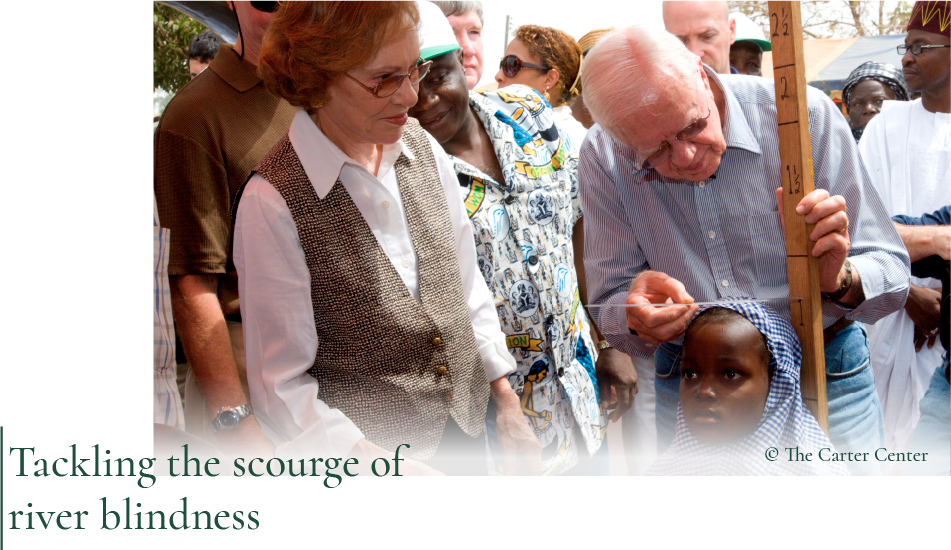
The Carter Center used US$840,000 of its Prize money to combat the disease in Africa
The disease, whose official name is onchocerciasis, was once so widespread in Africa that health authorities’ efforts were focused on control. With 99 percent of global cases on the continent, eradication appeared to be impossible. The Carter Center, however, sets its sights higher to push for an even more positive outcome. The disease is a parasitic infection that can cause rashes, skin discolouration, intense itching and eye disease that usually leads to permanent blindness. The Carter Center used US$840,000 of its Prize money to combat the disease in Africa, after having enjoyed widespread success with its methods in Latin America.
Its elimination programme focuses on health education, together with the mass administration of Mectizan, a drug that kills the parasitic larvae in the body. Its methods, employed more than 300 million times, have led to the successful elimination of the disease in Colombia, Ecuador, Mexico and Guatemala. It’s now seeing success in breaking the chain of transmission in Uganda and Sudan through biannual treatments with the drug.
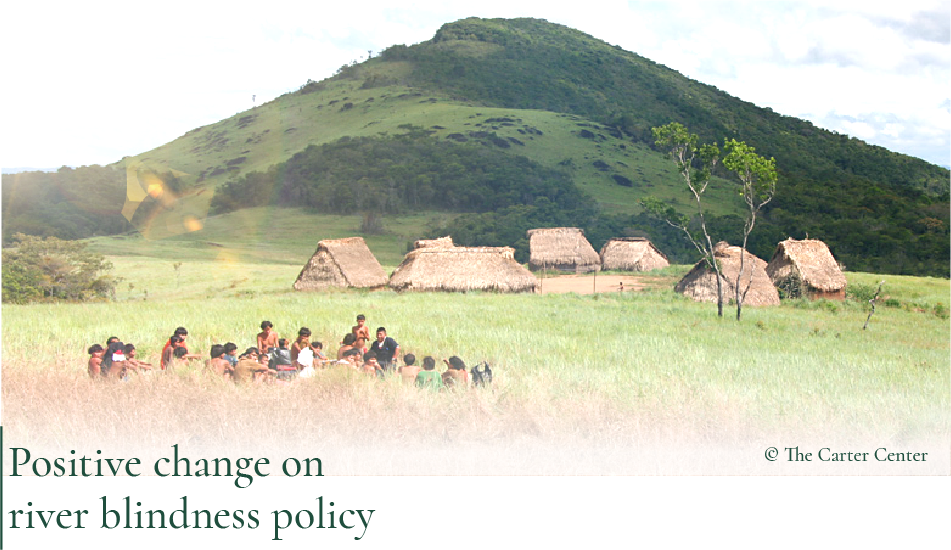
25 years of work
The achievements have inspired local governments to raise the bar in their efforts, with the Ethiopian and Nigerian Ministries of Health shifting the policy of their river blindness programmes to elimination rather than control.
By 2018, Nigeria’s Federal Ministry of Health announced it had interrupted transmission of the disease in two large states after more than 25 years of work with the Carter Center. As a result about 2 million residents no longer require medicine. Efforts to eradicate the disease continue in the southern states of the country, but the achievement so far has been remarkable, given Nigeria is the most endemic country in the world, accounting for 40 percent of the world’s total.
“By delivering millions of doses of Mectizan, we have prevented blindness,” it said. “Through training thousands of health workers in Sudan and Nigeria, we will save an untold number of lives.”
In a report, to the Lui Prize, the Center highlighted how the Prize had been put to improve the lives of millions living in Africa.
The Lui Prize is again calling for nominations in each of its three Prize Categories for candidates who can make a difference and who can contribute to the betterment of the global community. The Carter Center has shown through its humanitarian efforts that even the world’s most seemingly intractable problems can be tackled with perseverance and positive energy.
